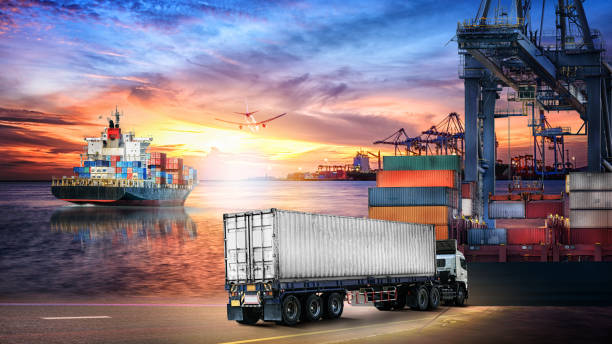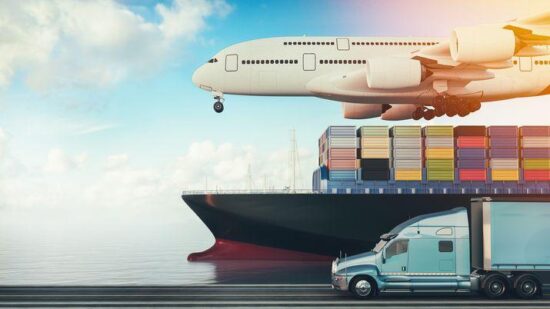Indonesia, an archipelago of over 17,000 islands, rely heavily on efficient cargo expeditions to support its economy as well as connect its various regions. With its vast area of islands and seas, the country’s logistics network has a crucial role to play in ensuring the smooth flow of goods across provinces, cities, and international borders. Cargo expedition services in Indonesia have evolved significantly over the last few years, driven by advances in technology, increasing demand for e-commerce as well as the growing opportunities for trade. They not only aid in transportation of goods, but also bolster economic development through connecting rural areas to urban centers and global markets. Since they are the foundation for Indonesia’s supply chain, cargo expeditions form an indispensable component of the infrastructure that Indonesia has.
The complexity of Indonesia’s geography creates unique opportunities and challenges to cargo-related expeditions. The sheer number of islands, along with varying terrains and weather conditions, require a wide selection of modes of transport that include planes, ships as well as trucks and railways. Ferry services and shipping to the coast are especially important as they link small islands to important ports like Tanjung Priok in Jakarta, Tanjung Perak in Surabaya, and Belawan in Medan. In spite of these challenges to logistics this sector is continuing to grow and innovate by incorporating advanced tracking technologies, optimizing routes and purchasing more efficient vessels and vehicles. Being able to adjust to this geographical challenge is the main reason for the successful cargo operations in Indonesia.
One of the biggest reasons for the increase in cargo travel of the country Indonesia is the rise of online shopping. With more consumers shopping online, there has been growing demand for reliable and timely delivery services. Platforms such as Tokopedia, Shopee, and Lazada have helped fuel the trend and pushed logistics firms to broaden their reach and improve their capabilities. Numerous cargo adventure providers provide complete solutions, such as storage, last-mile delivery as well as real-time tracking to meet the needs of e-commerce firms. This synergy between logistics and commerce highlights the vital role that cargo excursions are playing in supporting Indonesia’s thriving digital economy. By streamlining operations and improving efficiency, this industry is helping to bridge the gap between business and consumers even in the remotest zones.

The importance of cargo voyages goes beyond the domestic market in that Indonesia is a key player on the international stage of shipping. Because of its strategic location on key shipping routes make it an important logistical hub in the world. The major exports like coal, palm oil textiles and rubber depend on reliable cargo service for international trade. Additionally, the government’s initiatives to develop special economic zones and to improve the port infrastructure have further increased Indonesia’s appeal as a global logistic hub. The development of projects like the Patimban Port and the expansion of the New Priok Terminal highlight the nation’s dedication to enhancing its position in international trade. This is not just expanding export opportunities, but they are also attracting foreign investment in the logistics sector. For more information please Continue Reading
Environmental sustainability is becoming increasingly crucial to cargo expeditions in Indonesia. With global concern over the effects of climate change increase, logistics companies are exploring ways to reduce the carbon footprint of their operations. Many are adopting greener practices like using more energy efficient vehicles, optimizing delivery routes and also exploring alternatives for fuels. In addition the government has also introduced rules aimed at encouraging sustainable shipping practices, encouraging firms to be innovative and ensuring compliance with the environmental requirements. These efforts align with Indonesia’s broader goals of achieving sustainable economic growth and minimizing the environmental impact. As the cargo expedition sector continues to evolve, sustainability will likely have a significant role to play in shaping its future.
The cargo missions constitute the foundation of Indonesia’s economy. They link its islands, helping the growth of e-commerce and helping facilitate the international commerce. In spite of the difficulties posed by its complex geography this sector has shown the ability to adapt and withstand technological advancements and strategic investments. As e-commerce continues to grow and environmental sustainability takes place, cargo trips within Indonesia continue to be a key driver of the nation’s economic development. By addressing logistical challenges and taking a stance towards innovation, the industry is poised to thrive, ensuring that the goods are transported efficiently across the archipelago as well as beyond. To Indonesia, it is likely that the next phase of cargo operations is not just about transportation–it’s about fostering connections, advancing the process, and building a more interconnected globe.





